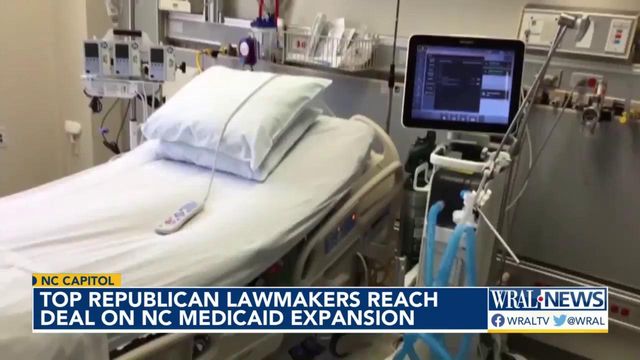After 13 years, Medicaid expansion on its way to governor in NC
The North Carolina House of Representatives gave final approval Thursday to a bill that will expand Medicaid in North Carolina, when and if a new state budget passes.
This would make North Carolina the 40th state in the country to adopt expansion, which would add hundreds of thousands of people, most of them likely working adults who can’t afford health insurance, to the state’s Medicaid insurance rolls. The federal government would pay the lion’s share of these costs, pumping billions of dollars into the health care industry.
The House’s vote was a bipartisan 87-24 approval that sends this measure to Gov. Roy Cooper, who promised to sign the bill soon. The vote came 13 years, to the day, after the Affordable Care Act overhauled U.S. health care laws, including a state-by-state option to expand Medicaid.
One key hurdle remains, though: Implementation is contingent on the state passing a new budget, a caveat Republican leaders inserted to give them more leverage over Cooper and other Democrats, who may have to swallow more GOP policies and spending priorities to get expansion, long a top Democratic priority.
Speaker of the House Tim Moore alluded to this in a statement after the final expansion vote, saying, "I look forward to passing a strong conservative budget for North Carolina so that expansion can take effect."
For years North Carolina Republicans in the state legislature’s majority fought expansion. But as “Obamacare,” as the ACA was once derisively nicknamed, survived legal challenges and Congressional attempts to repeal it, Republicans began to come around. As rural hospitals in right-leaning districts struggled, and as the federal government sweetened the fiscal promises that come with expansion, many GOP lawmakers embraced the idea.
Last year Senate Republican Leader Phil Berger got on board, acknowledging that he’d probably been the idea’s biggest opponent in North Carolina. That ushered in a back-and-forth between the Senate, House and state hospitals, and it ultimately produced a compromise bill that emerged earlier this month.
Senate Republicans demanded, and ultimately won as part of this bill, hospital regulation changes meant to boost competition in the industry. Multiple rules requiring government approval before a hospital adds an imaging machine or a doctor’s group opens a surgical center will be repealed in the coming years, allowing medical companies to expand in some of the industry's more lucrative offerings.
The idea is to boost the overall supply of health care in the state as more people are added to the Medicaid insurance rolls and ultimately seek medical care.
Lawmakers left a similar idea on the cutting room floor, though. The SAVE Act would let advanced practice registered nurses, all of whom are required to have at least a master’s degree and state certification, serve patients without a doctor’s supervision. Nurses say this supervision often amounts only to paperwork that doctors charge tens of thousands of dollars a year to sign, but doctors groups pushed back against the proposal in the name of patient safety.
House leadership backed the doctors, and the SAVE Act was jettisoned from the compromise bill that emerged, House Bill 76.
In addition to expansion, and repeal of the many of the state’s “certificate of need” hospital regulations, the bill also allows hospitals to accept billions in federal Healthcare Access and Stabilization Program (HASP) payments.
State Rep. Donnie Lambeth, one of a few Republicans who supported expansion for years and a sponsor on the bill that ultimately passed, put the HASP impact over the next 5 years at $14 billion.
That’s in addition to the estimated $6 billion the federal government will kick in each year to cover new Medicaid patients. And it’s beyond the roughly $1.8 billion sweetener the state will get for implementing expansion, something a Democratic Congress made part of a pandemic era appropriations bill to entice holdout states.
There was no debate on the House floor ahead of Thursday's vote, or before another required vote Wednesday. There were few speeches, with only minutes dedicated to the final votes on a massive piece of policy following more than a decade of intrigue and debate.
Lambeth, R-Forsyth, said he thought about going through 8 years of efforts to pass something like this, but he decided not to.
"All I'm going to say to you is thank you," Lambeth said instead. "Thank you, thank you, thank you. Vote!"
As the bill passed, House Democrats stood and applauded. Republican Speaker of the House Tim Moore let that go on for a moment before gaveling them down and calling for decorum.
"You know we don't applaud at the passage of any bill," said Moore, regardless of its import.
In a Tweet, Cooper called expansion "a once in a generation investment that will make all North Carolina families healthier while strengthening our economy."
"I look forward to signing this legislation soon," Cooper said.












